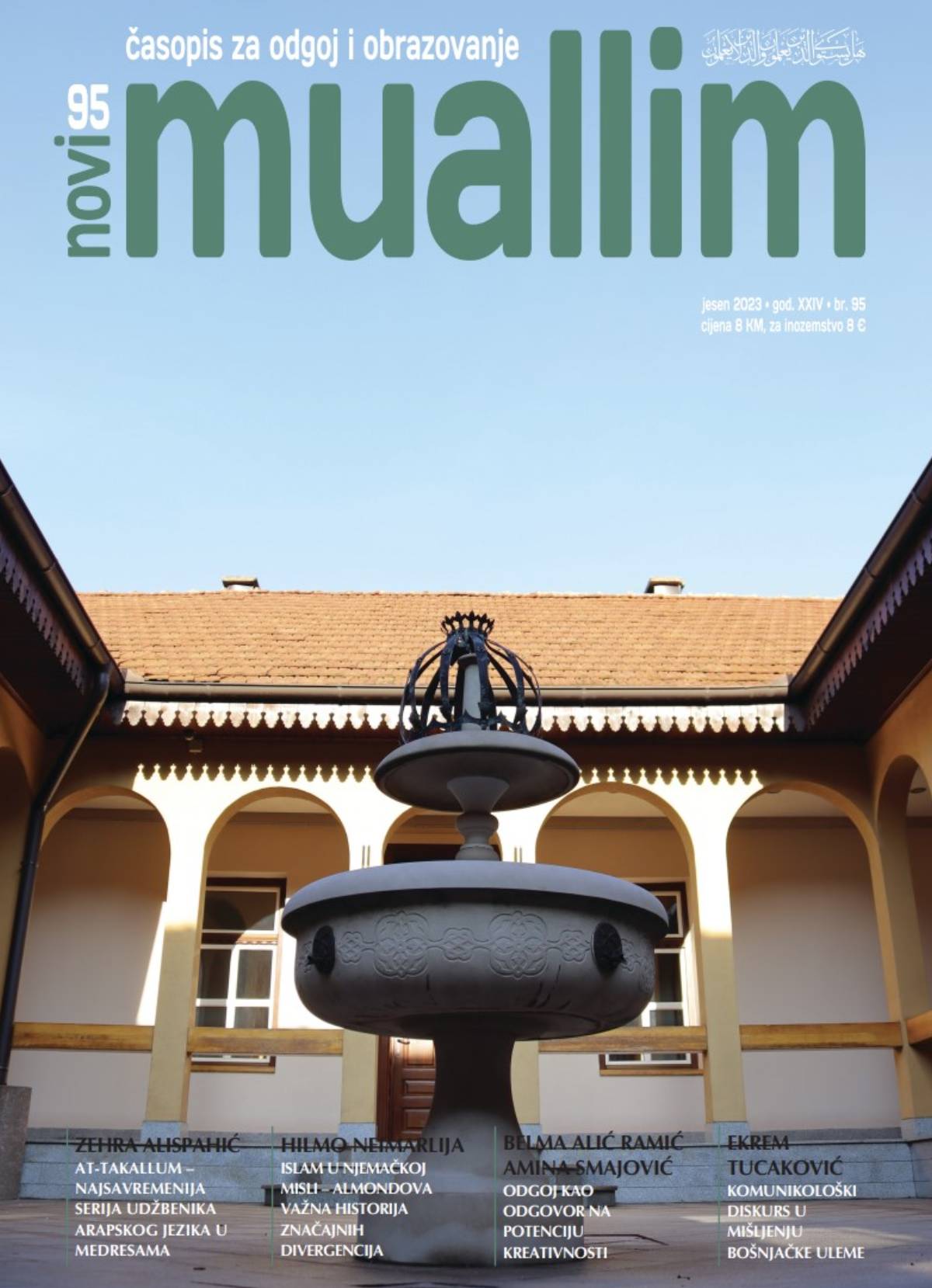UPBRINGING AS A RESPONSE TO THE POWER OF CREATIVITY
DOI:
https://doi.org/10.26340/muallim.v24i95.2039Keywords:
creative teaching, creativity, upbringing process, family environment, school environmentAbstract
UDK: 37.032-053.4/.5
The problem of creativity is a popular topic in contemporary discourse on upbringing, even though this term is theoretically established as a pluralistic idea. The term creativity is closely related to the terms: innovation, creation, potential, discovery, talent, generating ideas, and divergent thinking. However, we must stress that each of these identifies an aspect of human performance which may be and most often are a part of creativity, but none can be used as a synonym for the term creativity itself. Defining and recognising creativity as an interdisciplinary, multidimensional phenomenon is necessary for contemporary upbringing because knowing what it is can significantly enhance the process of learning and make it easier. The aim of this article is to elaborate particular qualities and aspects of nurturing creativity in both, family and school environments and to highlight some requirements which are necessary for making a step forward towards creative learning and teaching. Creativity requires particular creative aspects of learning and teaching in both social environments: identifying creative potentials, and encouraging the process wherein creative ideas or products can evolve. The process of upbringing as a whole should be a form of searching for potential creativity and a form of response to potential creativity. Most importantly it should include a variety of incentives with the aim of developing the inner strengths. By holistic understanding of creativity here we emphasised some key elements of creative learning and made some recommendations for the implementation of creative teaching in the upbringing practice.
Downloads
Published
How to Cite
Issue
Section
License

This work is licensed under a Creative Commons Attribution 4.0 International License.
Naknada:
a. Časopis ne naplaćuje naknadu za obradu članaka (APC) i naknadu za podnošenje članaka.
Autori koji objavljuju u ovom časopisu pristaju na sljedeće uvijete:
- Autori zadržavaju autorska prava i pružaju časopisu pravo prvog objavljivanja, pri čemu će rad jednu godinu po objavljivanju biti podložan licenci Creative Commons imenovanje koja omogućuje drugima da dijele rad uz uvijet navođenja autorstva i izvornog objavljivanja u ovom časopisu.
- Autori mogu izraditi zasebne, ugovorne aranžmane za ne-ekskluzivnu distribuciju rada objavljenog u časopisu (npr. postavljanje u institucionalni repozitorij ili objavljivanje u knjizi), uz navođenje da je rad izvorno objavljen u ovom časopisu.


